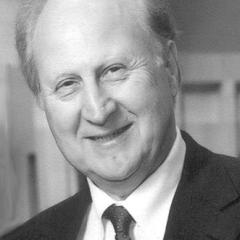
No One Is Listening
On July 2018, I wrote an article entitled, “Wanted: Listeners, not Interrupters,” for San Diego Jewish World. I received several revealing responses from friends and others, each with the same opening sentence: “I am guilty of being a poor listener.” Frankly, their confessions were not surprising as poor listening is endemicin our society. Even after I met with the same friends later, there was little change in their behavior.
I thought I was whistling in the dark with my observations, and put it aside until I came across a New York Times article this past December 17th, “Are You Listening?” by Gordon Marino. I was inspired again and decided to revisit my original article and expand it. For new readers, here is the opening of my 2018 article “You are with friends, and one person says, “I just bought a new Honda.” Quick as a flash, someone immediately pipes up, “My friend just bought a Honda!”
At another time and place someone remarks, “My sister is going to have a hip replacement.” Of course, someone cuts in with, “I had that surgery and it was …”
The speaker is quashed, stopped in his/her tracks, and another interrupter interrupts the first interrupter! No one is listening.”
What I had not included in my original article is that several years ago, I had also been among the guilty. My late wife, Marcie, patiently endured my interruptions for years, and often had to cut me off to finish her sentence. She was an excellent listener, and the word interrupt was not in her vocabulary. Family and friends enjoyed being with her knowing she actively listened and only commented when it was appropriate.
One day, during a counseling session, she said that while I carefully listened to grieving families to prepare a eulogy, I was a poor listener when it came to her. To which the counselor replied, “Yes, that is his job.”
Job, hell! Being a better listener for her was far more important than any job! There was no excuse for my insensitivity to Marcie knowing full well that I was capable of listening professionally. I turned my behavior around and made it my job to become a better listener to everyone!
From that moment on, she became my role model. I made an active effort to learn to listen. I spent time reading, researching, doing some self-reflection and actively observing the erratic flow of conversations. I made some remarkable discoveries.
First, I found that by scrambling the letters in the word, “listen,” we get the word, “silent.” Indeed, silence is the essence of active listening. As one scholar wrote, “We have two ears and one mouth, and should listen more than we speak!” I now make an effort to stay with the speaker and join in only when it is appropriate. As Gordon Marino stated in his article, “Good listening is not a matter of technique, but of having the willingness to enter into another person’s life.”
Interestingly, only a few weeks after Marino’s article was published, another article appeared in the New York Times entitled, “Talk Less. Listen More. Here’s How,” by Kate Murphy. Ms. Murphy is the author of, “You’re Not Listening: What You’re Missing and Why it Matters.” She stated that, “it is only by listening that we engage, understand, empathize, cooperate and develop as human beings. It is fundamental to any successful relationship — personal, professional and political.”
Superior listeners gather more information than just the speaker’s words. Research shows that people who feel listened to are more likely to engage in future interactions with you. Making eye contact with a speaker is further evidence of your interest. Listening is an act of kindness and compassion to your family and friends. According to author Stephen Covey, “Good questions are evidence that you have listened, and are interested.”
So, the next time you are with family or friends, imagine you are a fly on the wall. Just listen and observe. It will help you to be more sensitive to the crazy pattern of interruptions.
By becoming a good listener, these same family and friends will enjoy being with you more, knowing you are really interested in hearing them. Changing one’s behavior is not easy, and is always a work in progress, but well worth the effort. Good luck on your journey to become a better listener.

